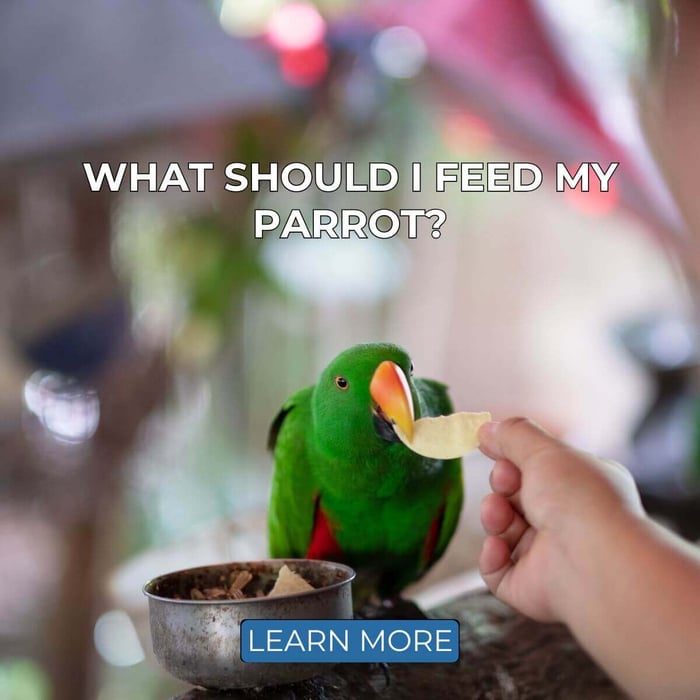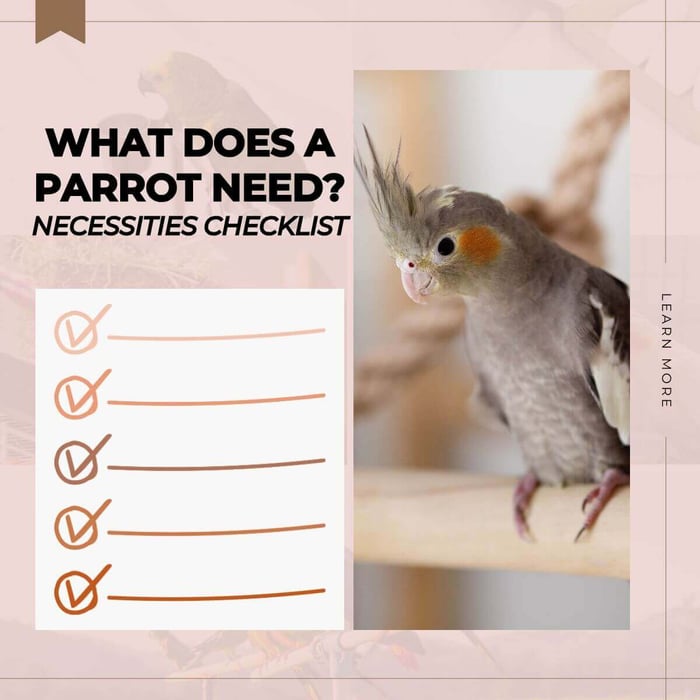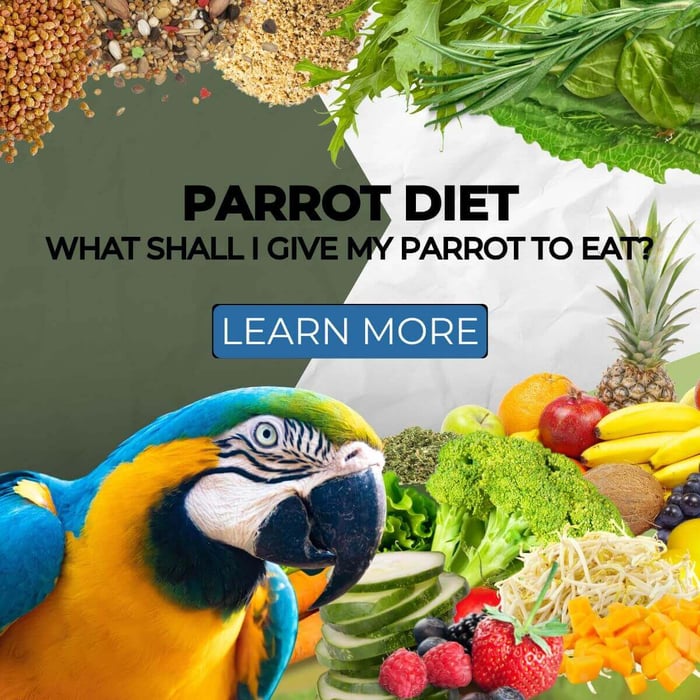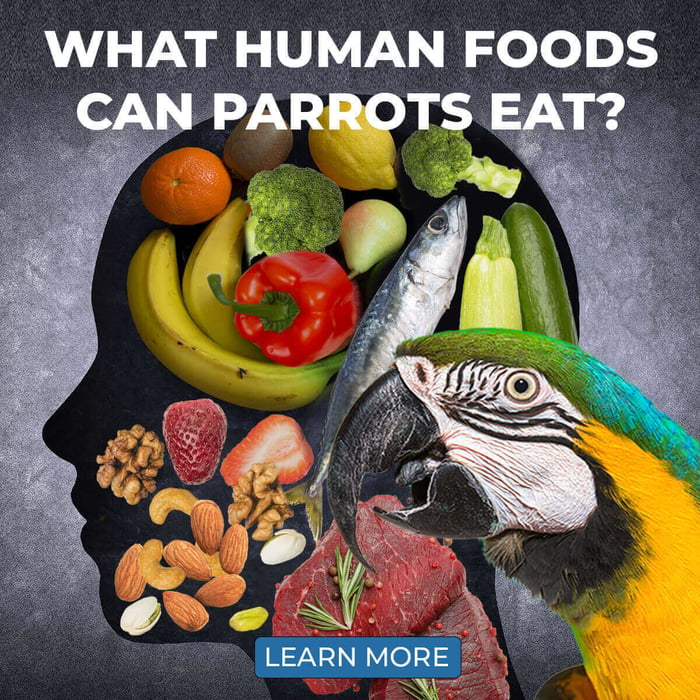7 Toxic Parrot Foods You Should Avoid
It can be tempting to share human foods with your parrot, and it's always important to keep their diet varied. However, did you know that there are some toxic parrot foods that you should avoid at all costs? Ingesting certain foods can lead to severe health issues or even be fatal to your bird. Let's explore 7 toxic parrot foods you should never feed your feathered friend, as well as 5 others that require caution.
Alcohol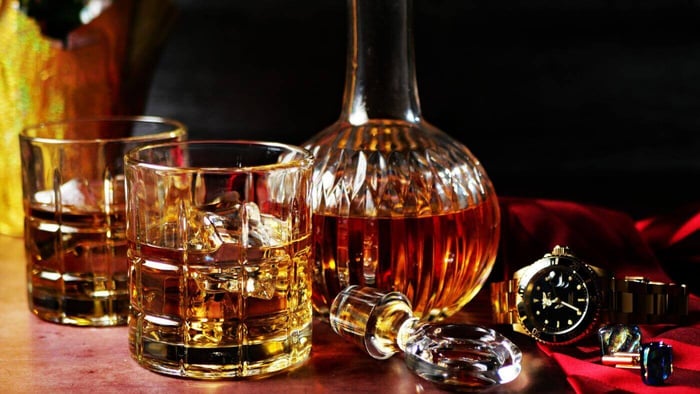
Alcohol is one of the most dangerous substances for parrots. The effects of alcohol on birds are similar to humans, but since birds are much smaller, their systems can't handle even tiny amounts. Alcohol can cause the organs to shut down, and in some cases, it can be deadly.
In addition to alcohol, substances like marijuana and prescription drugs can also cause severe adverse effects or even death. This is particularly dangerous during stressful events like fireworks or loud celebrations, when your parrot may inadvertently ingest something harmful.
Chocolate
Chocolate, especially dark chocolate, contains compounds like theobromine, caffeine, and theophylline. Even small amounts of chocolate can be deadly to parrots. The chemicals in chocolate can cause seizures, rapid heart rate, and even death.
Did you know? In 2007, a study suggested that a wild Kea parrot in New Zealand died after ingesting just 20 grams of dark chocolate that it had somehow found. This tragic event serves as a reminder of just how toxic chocolate can be for parrots.
Reference: Gartrell, B. D., & Reid, C. (2007). Death by chocolate: a fatal problem for an inquisitive wild parrot. New Zealand Veterinary Journal, 55(3), 149-151.
Caffeine
Caffeine is commonly found in coffee, tea, sodas, and energy drinks, and while it may give humans a boost, it can have the opposite effect on parrots. Ingesting caffeine can cause rapid heart rates, hyperactivity, and even heart failure in birds.
As with chocolate, it's best to avoid giving your parrot any caffeinated beverages. If your parrot consumes any of these products, it could lead to a life-threatening situation.
Avocado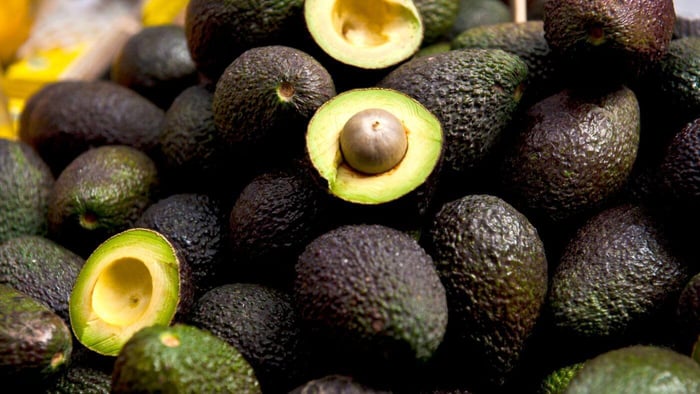
The avocado fruit contains a substance called persin, which is highly toxic to many bird species, including parrots. While some parrots appear unaffected by avocado consumption, others may suffer from severe toxicity.
In a study, budgies that ingested small amounts of avocado passed away within 48 hours. Better safe than sorry—keep avocados, avocado peels, and any parts of the avocado tree away from your parrots to avoid any risk.
Reference: Lightfoot, T. L., & Yeager, J. M. (2008). Pet bird toxicity and related environmental concerns. Veterinary Clinics of North America: Exotic Animal Practice, 11(2), 229-259.
Fruit Pits
Certain fruit pits contain cyanide, a toxic substance that can be deadly to parrots. Pits from fruits like apples, cherries, apricots, plums, and peaches are particularly dangerous. Cyanide poisoning can occur if your parrot ingests even a small amount of these seeds.
To keep your parrot safe, avoid feeding them any fruit with pits. If you do feed fruit, be sure to remove any seeds or pits before offering it to your bird.
Xylitol
Xylitol is a sugar substitute commonly found in sugar-free gum, candy, and other processed foods. While it is safe for humans, it is extremely toxic to many animals, including parrots. Ingesting xylitol can cause a severe drop in blood sugar levels, leading to hypoglycemia, seizures, liver failure, and death.
As a general rule, avoid giving your parrot any products that contain xylitol. Always check labels on food products to ensure they do not contain this harmful ingredient.
Onion and Garlic
Onions, garlic, and other members of the allium family are known to be toxic to birds. Although research on allium toxicity in birds is still limited, it is clear that these foods can cause digestive issues, anaemia, and liver damage.
In severe cases, the effects can be fatal. While small amounts of onion or garlic may not cause immediate harm, it's best to avoid them altogether to keep your parrot safe.
5 Toxic Parrot Foods You Should Be Cautious About
While the following foods may not be as immediately dangerous as the ones listed above, they should still be approached with caution.
Nightshades
Nightshade vegetables, such as tomatoes, peppers, and aubergines, can generally be fed to parrots without issues. However, the stems and leaves of these plants contain solanine, a toxic compound that can be harmful to birds.
To ensure your parrot's safety, remove any green parts from nightshade vegetables before offering them to your bird. As long as your parrot only consumes the fruit or vegetable itself, they should be fine.
Peanuts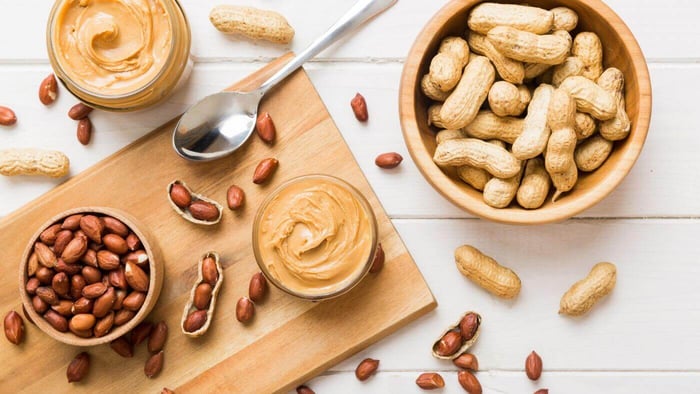
Peanuts are a common treat for parrots, but they should be fed with caution. If peanuts are improperly stored, they can develop a mould called aflatoxin, which is toxic to birds and can cause liver damage.
While human-grade peanuts are usually safe for parrots, they are high in fat, which can contribute to obesity if fed in excess. Many parrot owners prefer to avoid peanuts altogether in favour of other, healthier nuts.
Processed Human Foods
Processed foods like crisps, fries, and crackers may be irresistible to your parrot, but they can be dangerous. These foods are often high in salt and fat, which can lead to toxicity if consumed in large amounts. Salt toxicity can cause serious issues with a parrot's kidneys, and high fat content can lead to obesity and liver disease.
It's best to keep processed human foods out of your parrot's diet, opting for more nutritious, bird-safe options.
Dried Beans
While beans can be a healthy addition to your parrot's diet when cooked properly, raw or undercooked beans can be toxic. They contain a substance called lectin, which can cause digestive distress and, in severe cases, poisoning.
If you want to feed beans to your parrot, make sure they are thoroughly softened and cooked. Never feed your parrot raw beans.
Mushrooms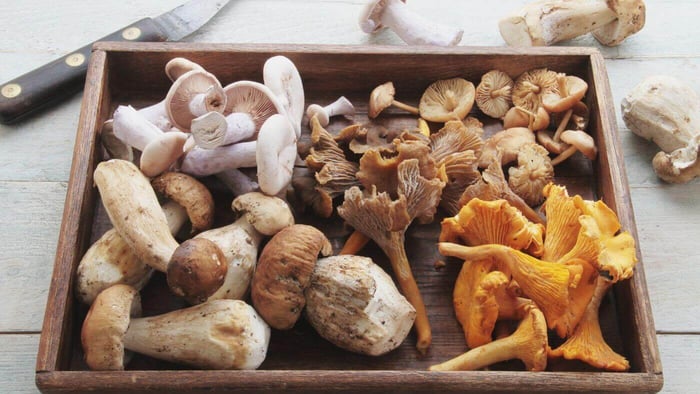
The safety of mushrooms for parrots is a subject of debate. Some sources suggest that human-safe mushrooms are also safe for parrots, while others recommend avoiding all mushrooms, as they can cause digestive upset.
Given the uncertainty surrounding mushrooms, it's safer to avoid them altogether and offer your parrot other fruits and vegetables that are known to be safe.
Conclusion
Understanding the dangers of toxic parrot foods is crucial in providing a safe and healthy diet for your feathered friend. By avoiding the foods listed above, you can significantly reduce the risk of accidental poisoning and ensure that your parrot lives a long and healthy life.
Remember, this list isn't exhaustive! Other foods like rhubarb (which contains irritating oxalic acid), cabbage (which can interfere with calcium absorption), and dairy (which birds cannot digest) should also be avoided. It's always important to do your research and consult with an avian veterinarian to ensure that you are offering your parrot a well-rounded and safe diet.
We also hope that more extensive studies on food toxicity in birds will be conducted in the future, as there is still much to learn. Luckily, there are plenty of proven safe foods to feed your parrot, so there's no need to worry when you stick to the basics.
Sources:
Lightfoot, T. L., & Yeager, J. M. (2008). Pet bird toxicity and related environmental concerns. Veterinary Clinics of North America: Exotic Animal Practice, 11(2), 229-259.
FAQs
What foods are toxic to parrots?
Avoid giving your parrot alcohol, chocolate, caffeine, avocado, and foods containing xylitol, as these can cause severe health issues or even death.
Can I feed my parrot fruits with pits?
No, it's best to avoid feeding your parrot fruits with pits, such as apples, cherries, and peaches, as the pits contain cyanide, which is toxic to parrots.
Are nightshade vegetables safe for parrots?
Nightshade vegetables like tomatoes and peppers can be fed to parrots, but make sure to remove any green parts, such as stems and leaves, which contain solanine, a toxic compound.
Are peanuts safe for parrots?
Yes, peanuts can be a treat for parrots but should be given in moderation. Ensure they are human-grade and stored properly to prevent aflatoxin contamination, which can be harmful to birds.
What should I do if my parrot accidentally ingests a toxic food?
If you suspect your parrot has ingested toxic food, contact an avian veterinarian immediately for advice and treatment to prevent any serious health consequences.

